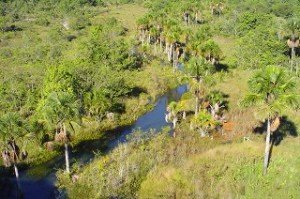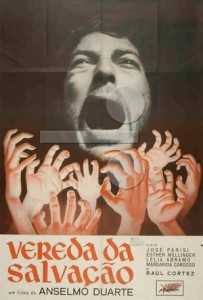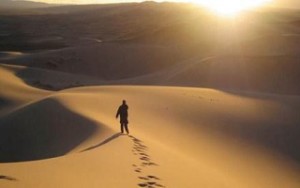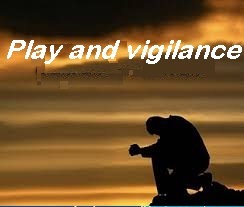
Arquivo para 2017
Veredas, where you can find them
“Where danger lives, there is also what is saved”, wrote the German poet Hölderlin, and in one of his last “The Way” the visionary Edgar Morin gathered part of the thought dispersed by the reductionism and systematized one on the future of humanity reconnecting knowledge and defending fraternity.
He deals in the book of collective reconstruction of thought about society, through the concept of metamorphosis (a simultaneous process of self-destruction and self-reconstruction in an organization in which identity is maintained and transformed into otherness), which would be a new solidarity.
The French thinker wrote: “I feel connected to the planetary patrimony, animated by the religion of the one who reconnects, by the rejection of what it rejects, by an infinite solidarity …”, to reconnect knowledge, to admit complexity, to rediscover nature and also Love, wrote a beautiful book “Love Poetry Wisdom” (Piaget Institute, 1997) which also about the loss of his wife Edwige: the inseparable, saying “I am an eternal love.”
In speaking of modern man’s disenchantment, a reporter’s question on hope answers: “All crises – be it economic, social, political, ethical, cognitive – are only reflections of humanity’s greatest crisis, which is failing to become human. But we must resist disappointment and loss of faith in a new world, because a new way, a new way, is always possible. But hope does not mean certainty. We can not escape uncertainty. ”
We can then seek Veredas, find shortcuts to the new time, a new “advent.”
Veredas and the importance for life
The special paths in the formation of the Brazilian biomes is named Veredas, it is where water table springs occur which, however small, will form the streams and streams that supply much of the rivers and allow clean and healthy water.
where water table springs occur which, however small, will form the streams and streams that supply much of the rivers and allow clean and healthy water.
As the vegetation is of a bush, of moist soil making the earth generally darker behave like wrecks and filters retaining the organic feelings and thus filtering the water that arrives at the stream during the rains, the serious problem of the paths is the possibility of desertification.
The fauna has maned wolves, anteaters, snakes, fish and amphibians, more diversified birds, palm trees and coconut trees offer abundant fruit for larger birds, while rivers provide fish for some large birds as well as migrating birds.
So a path, besides being a hidden path are sources of life, who crosses it will not only find a great road, a great river, but the walk itself along a path offers a rich life and also a beautiful landscape.
Searching for paths during advent is not only part of true and sincere religiosity, but especially of those who seek humanized spaces of friends and co-workers who are sources of life and daily toil for those who have work
Path of salvation and the advent
The book written by brazilian writer Jorge de Andrade between the years  1957 and 1963 was taken to the cinema in 1965 in an adaptation of the text for the theater of Jorge de Andrade, tells the story of the oppression in the field, and as it has a mystical exit, a montage made in 1964 under the direction of Antunes Filho was questioned by both the right and the left parties and at the time it was a failure, an assembly later in 2003 led by professor-director Marcelo Bones, with graduates of the Palace of the Arts (Palácio das Artes), all beginners.
1957 and 1963 was taken to the cinema in 1965 in an adaptation of the text for the theater of Jorge de Andrade, tells the story of the oppression in the field, and as it has a mystical exit, a montage made in 1964 under the direction of Antunes Filho was questioned by both the right and the left parties and at the time it was a failure, an assembly later in 2003 led by professor-director Marcelo Bones, with graduates of the Palace of the Arts (Palácio das Artes), all beginners.
The film directed by Anselmo Duarte (photo) tells of poor rural producers in the Northeast who join a messianic group led by Joaquim (made by actor Raul Cortez) who believes he is the reincarnation and Jesus Christ and promises his followers the road to paradise, which is the “path of salvation”, but as every false messiah slowly complicates himself.
Exercising power over the peasants, Joaquim pursues Artuliana (Ester Mellinger), who is pregnant, and asks his followers to take her son away, accusing her of being persecuted by the devil.
The film follows poor rural farmers in the Brazilian Northeast who join a messianic group, led by Joaquim (Raul Cortez), who believes he is the reincarnation of Jesus Christ. Joaquim promises to his followers that he will show them the way to paradise, the “path of salvation” of the title of the film.
With power over the peasants, the character of Raul Cortez begins to persecute those who do not pay him obedience, especially Artuliana (Esther Mellinger). Joaquim orders his followers to take the son of Artuliana, who is pregnant, accusing her of being possessed by the devil.
The film besides Raul Cortez has the participation of Lélia Abramo, José Parisi and Maria Isabel de Lizandra, and the history of messianism is nothing other than the history of Brazil, in pre-election times it is not difficult to pay attention to miracle workers and false prophets who vow to “defend the people” and promise false paths.
Roland Barthes, in his book Critique and Truth notes that the French term fait divers is structured from a search for a general news, something like a meeting.
The paths are hidden paths, what paths can be thought for the country in the coming years, what to expect for an brazilians elections in next year?.
Planning the Paths of Lord and Idealism
A serious social illness created by idealistic mentality is perfecionism,  as well as economic and the vision of knowledge, in its perfect trait is the one that most affected and developed in the depths of human psychology idealism, but it brings several disorders and does not flatten any road.
as well as economic and the vision of knowledge, in its perfect trait is the one that most affected and developed in the depths of human psychology idealism, but it brings several disorders and does not flatten any road.
The geometrical ideal, building and straightforward constructions, the ethicist morality of the state (Hegel defined it thus), lord even of the life and the hope of the people, does not really translate what is ethical, correct (and the rectum is only an appeal geometric) and what is good for human nature full of contours and imperfections, which should not have this name, perhaps the best translation in contemporary language is complexity.
Perfectionism can lead to symptoms like anxieties, obsessive disorders, although technically it is not a disease, it is at the root and what is worse in the thinking of many correct political, economic and even religious.
To flatten the ways of humanity should be just the opposite, to allow the human to develop, to discover possibilities and misunderstandings, to realize the process of learning that lasts a lifetime not only on the way to an unattainable perfection, but one that makes man happy .
The fact that diseases such as depression, various syndromes and human relationships are growing so difficult is nothing more than the difficulty of dealing with what is “imperfect” in its complexity, there are no equal people, not even equal mistakes, each one that commits it does for some new need of learning, this is for example, the difficulty of the so-called generation “neither nor”, by mistake of an overprotection.
Flattening the ways for a new “advent”, a new time, means first and foremost to rediscover the man, who is not the perfect, the Platonic “ideal” of beauty and purity.
Change thinking and prepar the way of Lord
What paths should we prepare today, in times of hatred, divisions,
 intolerances, apocalyptic and integrated emergence (Umberto Eco would say), and there is no way to prepare a new path, without a new thought, and there are new things, veil of views.
intolerances, apocalyptic and integrated emergence (Umberto Eco would say), and there is no way to prepare a new path, without a new thought, and there are new things, veil of views.
It is as the prophet Isaiah said about the coming of John the Baptist according to Mark (Mark 1,2-3): “Behold, I send my messenger before thee, to prepare thy way. This is the voice of one who cries out in the wilderness, ‘Prepare the way of the Lord, make straight his roads!’ “, but what roads must be prepared in this day and age, what a desert we have gone through.
It is certainly not for the Savior’s return, nor do we want any more Saviors of the Fatherland, we need the path to be prepared for a new conscience, different from the idealist who built modernity, Enlightenment or elitist Encyclopedism.
If Heidegger announces that we must take up a new question, the question of “being,” it should not and can not be separated from a wider social context, less inequalities, more religious tolerance, acceptance of ethnic, cultural and gender diversity, but without the ideological rancor that warms the mood and hinders progress.
To retake the essential questions of Being means to return to the real dramas of humanity that go beyond hunger and exploitation, which are far more consequences of existing models than the origin of this model, it was thought in an idealistic way, that developing more would have more distribution of the human on the planet and fewer explorations from various angles and senses, what we see as the final product says this premise was false.
Perhaps returning to the essential questions of what Being is, we will better understand what it is to be man and his relation to everything that is his existence.
Preparing the ways means then to prepare the way for a more promising future, where the Being is at the center of the activity and not the Self.
Thought, desert and Being
One of the foundations of understanding contemporary thinking about the Being is to make a reading where interpretation is open, that is, to make an “epoché”, an emptiness to erase our filters of preconceptions that we establish about any reading, only then we penetrate this novelty: our “Being” and Being-there, the “dasein” of Heidegger.
Being is to make a reading where interpretation is open, that is, to make an “epoché”, an emptiness to erase our filters of preconceptions that we establish about any reading, only then we penetrate this novelty: our “Being” and Being-there, the “dasein” of Heidegger.
In his text “Heidegger’s Urgency: Introduction to a New Thought” (Três estrelas editors, 2013), he suggests that in addition to being a master of thought, he teaches us to “think at our own risk, personal and non-transferable in the plane of our thoughts and opinions. “(GIACOIA, 2013, p.109)
The emptying of thought is one of the fundamental aspects of emptying our being, so the desert and the exercise of looking at our essence (of course without ever losing our relationship with the world and with others) is nothing more than openness to our being. an “advent,” things to come if we are open and attentive, beyond pre-conceptions.
Far from these preconceptions, ours awakens as Heidegger points out to the “unveiling”, there is a veil over our thoughts and our “visions” of the world, of the person, but mainly about the thought itself that is conditioned to a way of being circumscribed in philosophy, and that even if we do not know how to shape our “thinking”.
Heidegger himself lived a period of isolation in the black forest, but one does not have to be a philosopher to think, one has only to listen and to dialogue (even).
What many call reality, concrete or another name of impact, is nothing but the subjectivity of idealism, that which distances itself from subjectivity: beauty, poetry, contemplation and, above all, the set of subjectivities that make up our Being, without they are in fragmented feelings, and it is they that confront us with the Other.
The veil that conditions us to a particular view of the world, of society and of the Other, is the veil of idealism and ideologies, and the desire to condition and mold the other to our thinking is precisely because we consider that what is there is the normal, correct, but he is deeply penetrated by ideology and idealism.
Only a strong desert exercise, and open thinking to “unveil” can achieve a new advent, what is to come is not the same as always, is new and can change everything.
GIACOIA Jr., O. Heidegger urgente: uma introdução a um novo pensar (Heidegger’s urgency: introduction to a new thinking). São Paulo: Três estrelas, 2013
Desert or nihilism
Put simply, nihilism is the absence of meaning of things that seems to reflect in the present day, this makes man not desire the feeling of emptiness, contemplation and desert that on the contrary seeks to capture the deeper meaning of things by doing an “inner silence” and not a nihilistic “void”.
present day, this makes man not desire the feeling of emptiness, contemplation and desert that on the contrary seeks to capture the deeper meaning of things by doing an “inner silence” and not a nihilistic “void”.
For Nietzsche it was the belief in the categories of reason that made us believe in a world that was constructed by false references, and even critics in modernity, mostly when they do not perceive this idealistic and empty ‘psychological state’, are attached to it and go around in circles looking for answers now in a false subjectivism of various forms (religious, ideological and even poetic), or in a false objectivism of the “active vita” advocated by Hanna Arendt, but which the philosopher Byung-Chul completes with the “contemplative vita “.
On nihilism, according to Giacóia Junior (2007), “Nietzsche thematizes three forms of nihilism, considered as a ‘psychological state’, that is, as a content of reflective consciousness. In each of them, it is always a category of reason, which gives support to an interpretation of becoming and of the value of human existence in the current of becoming, “this falls to the dismay of” was all in go. ”
The second is a need for totality, what is now said as the absence of a single discourse, what Giacóia comments as: “form of nihilism as a psychological state is presided over by the category of” totality “- as a support for a global interpretation of become. The representation of a unity, of a global organization and systematization would connect the chaotic multiplicity of individual, contingent and ephemeral beings to an integrated and organic totality – a rational whole, of infinite value (pantheism, monism, etc.), promoting reconciliation between random finitude and necessary infinity, “as a complete discourse falls on simplism.
The third form, which is nothing more than a conjunction of the previous two, comments Giacomo, is a “form of nihilism arising as an awareness of the mendacity of the metaphysical world, and as disbelief in the category of truth – with the discovery that the coming- being is the only reality – a reality, however, that we can not bear. “, it usually turns to pure idealist subjectivism or to unbridled activism of being “doing. ”
The desert seen with the search for Being, openness to the state of activity of contemplation, or contemplation of activity, is an ontological turn, penetration in the subjective of Being
Desert and contemplation
Among the difficulties of modern man is contemplation, so he wants to make everything  smooth, everything polished, without pain, without blemish, without risks and without diseases, but the remedies and vaccines, in general, are an attenuated disease, that is, it is part of nature.
smooth, everything polished, without pain, without blemish, without risks and without diseases, but the remedies and vaccines, in general, are an attenuated disease, that is, it is part of nature.
We want nature in our image and likeness, and we do not allow it to go its way, so we feel in a desert that we ourselves have built, not to be confused with silence and the “desert of the soul,” perhaps an improper name, for contemplation.
But there is a desert of existential emptiness, of nothingness that we seek in the society of consumption, sterile religiosity or idealistic philosophy, a void that is not a silence.
Contemplation is just the opposite, and clarifies the thinker Byung-Chul Han, in the Society of Fatigue, the pursuit of “active life” has become opposed to contemplative and then it is a desert full of things whose real existential meaning is questionable , precisely when we are in hyperactivity, social and non-psychic disease, is that we are in the void.
Contemplation demands something beyond pure imagination, one must see “with the eyes of the soul”, see beauty in seemingly imperfect nature, and for this it takes some form of belief to hope for the future.
Thomas Merton, a materialist converted to Christianity who became a great mystic, said: “It is faith, not imagination, which gives us supernatural life; faith justifies us; faith leads us to contemplation.”
Contemplation is not passivity, therefore, but attentive listening beyond the senses,
Essenes and John the Baptist
Among the various Jewish groups at the beginning of the Christian era were the Essenes (Issi’im), actually two centuries earlier, implying that John the Baptist was not their founder, the so-called Qumran community, and perished shortly afterwards in the year of 68, which proves his prophetic sense of announcing the coming of the Savior, as John the Baptist preached.
were the Essenes (Issi’im), actually two centuries earlier, implying that John the Baptist was not their founder, the so-called Qumran community, and perished shortly afterwards in the year of 68, which proves his prophetic sense of announcing the coming of the Savior, as John the Baptist preached.
In the manuscripts found in 1947, they revealed that they were a “humble people, of great knowledge, originating in Egypt”, forming a group that left the cities and went to live in the region of Qumran, the shores of the Dead Sea, were vegetarians and extremely ascetic . After the Qumran manuscript was found, many controversies arose, even though Jesus was in fact an Essene, another that some fled to India and founded communities with their principles, some of these manuscripts were inside clay jars and spoke of life of Jesus Christ and said about the importance of cures with alternative medicines and the importance of vegetarian culture.
The Essenes also advocated unity and peace, for it was a period of division among the Jews, several had contact with Jesus and are present in biblical passages.
The Sadducees were people of high society, members of priestly, educated, wealthy and aristocratic families; the Pharisees did not believe in the afterlife and therefore did not say anything about their eschatological vision (of the beginning and end) being more concerned with the Jewish rules and “laws”, the Zealots rejected the payment of tributes to the Roman empire under the claiming that such an act was a betrayal of God, among the apostles of Jesus, Simon was a Zealot and Judas, the traitor also, and also the late apostle Paul of Tarsus, refers to himself as a religious zealot (Acts 22: 3 , Gal 1:14).
Within this religious confusion, the Essenes were among other groups that went to desert areas to avoid contamination of misrepresented ideas of religion, two disciples of Jesus were followers of John the Baptist: Andrew and John, but being Simon brother of Andrew many authors claim that he was also Essene, besides being zealots


